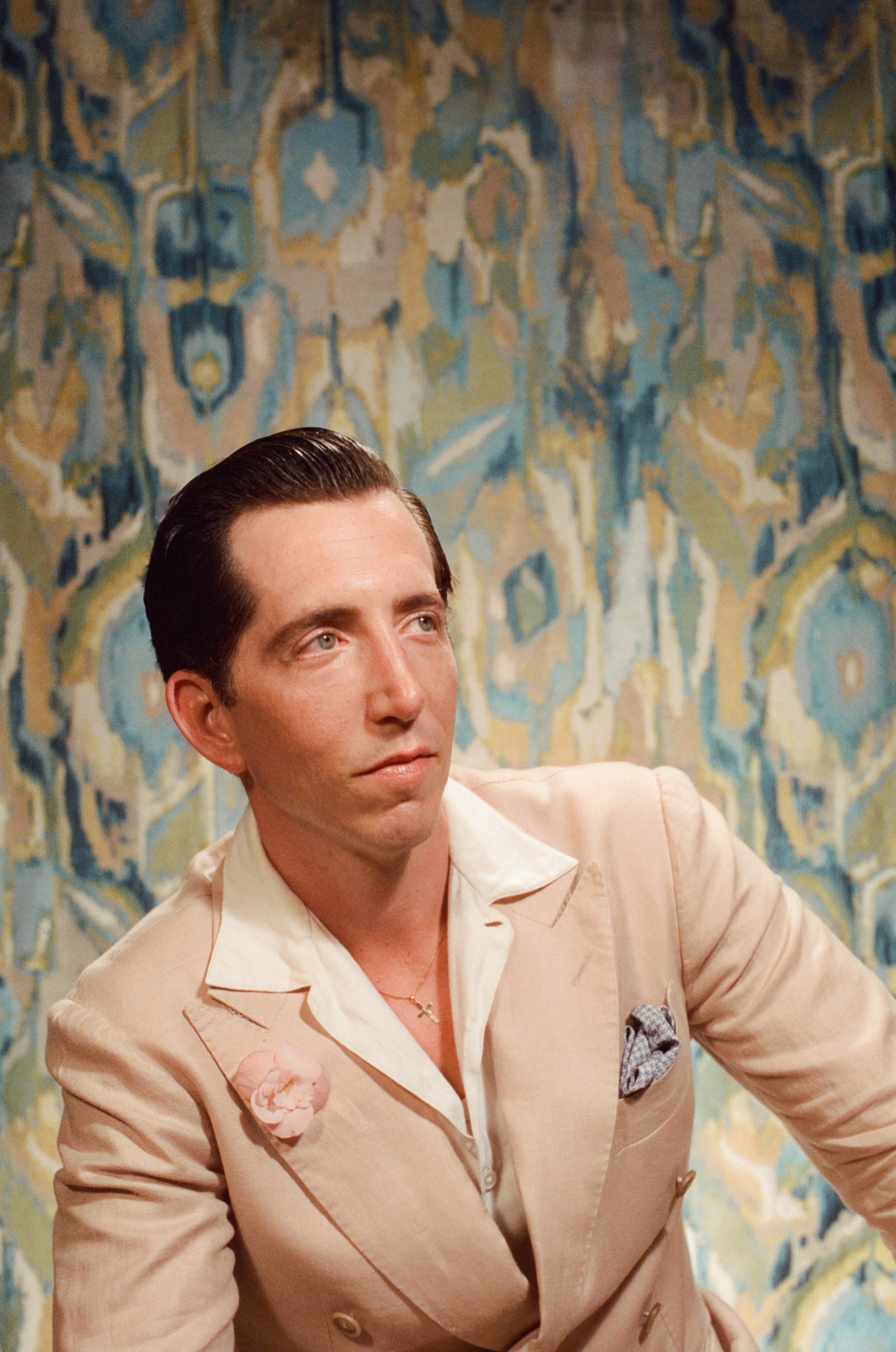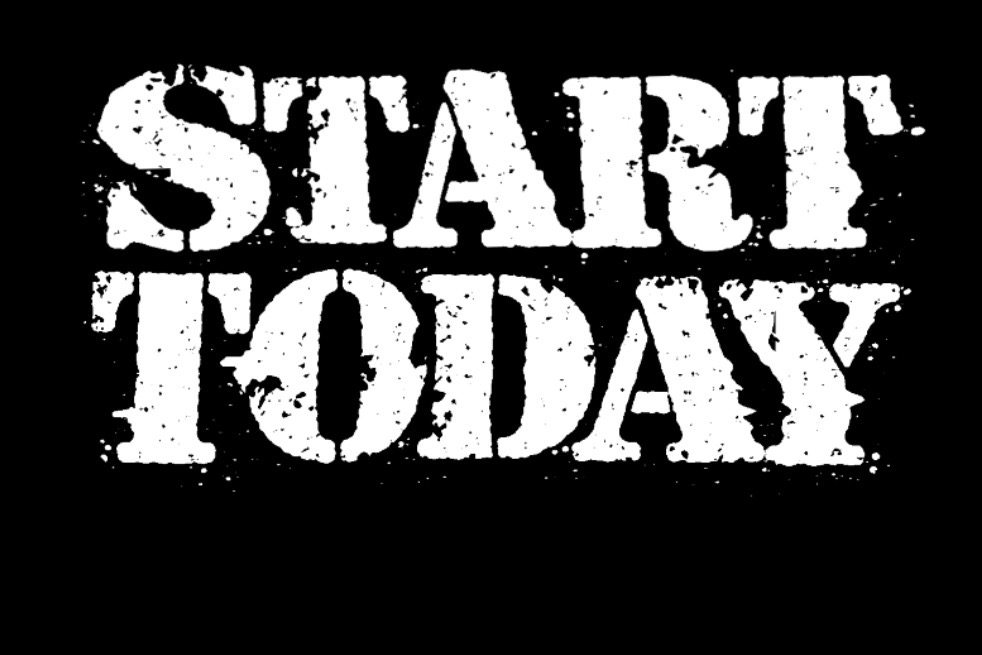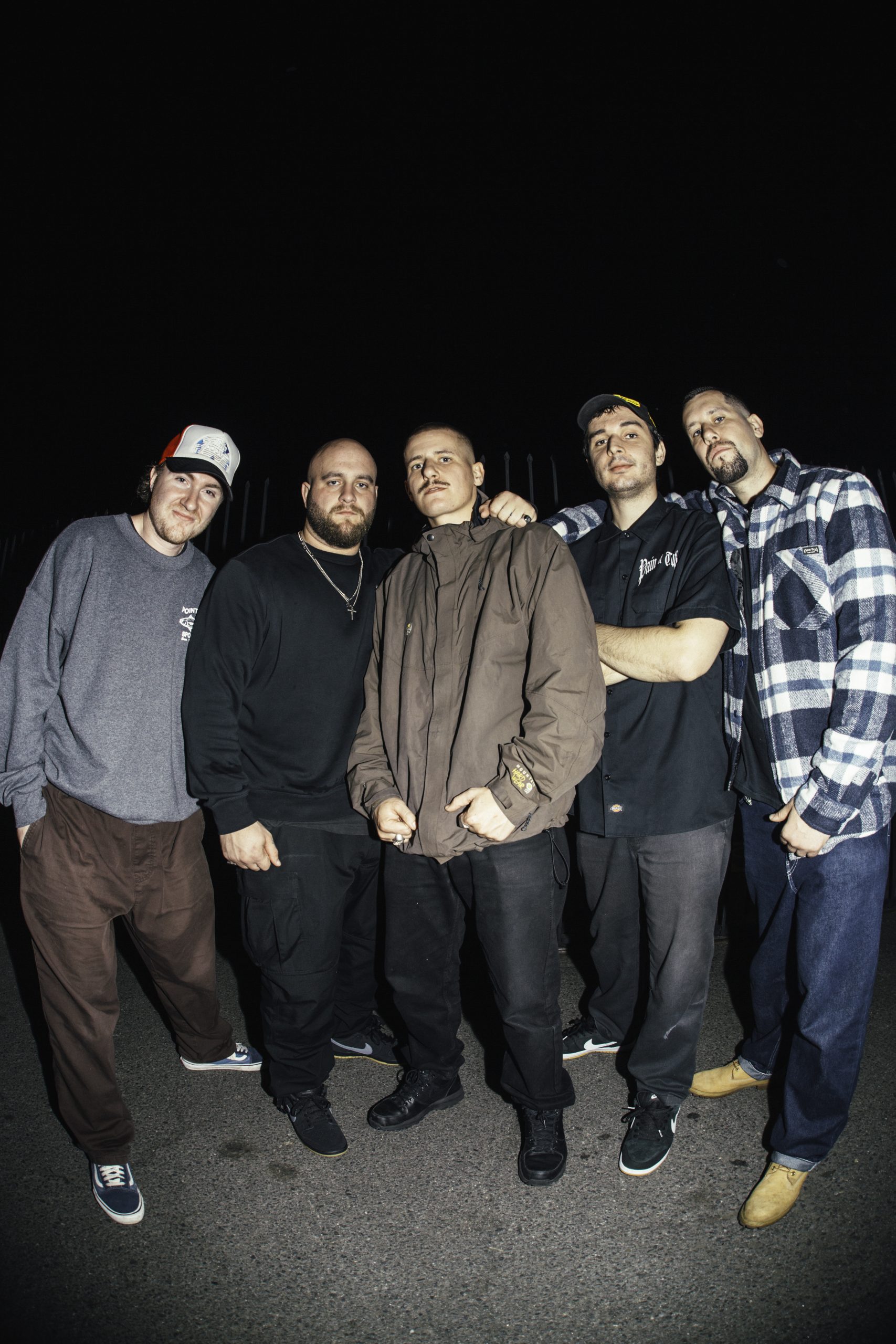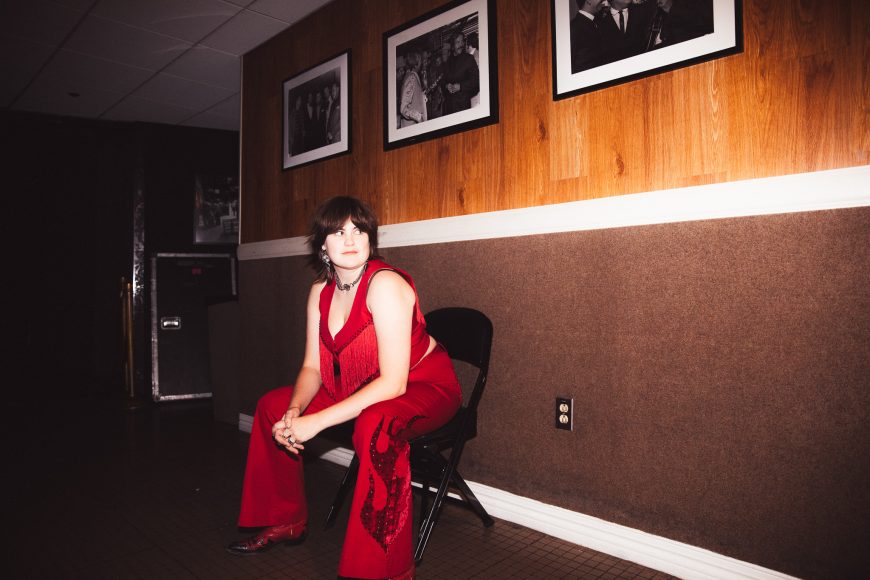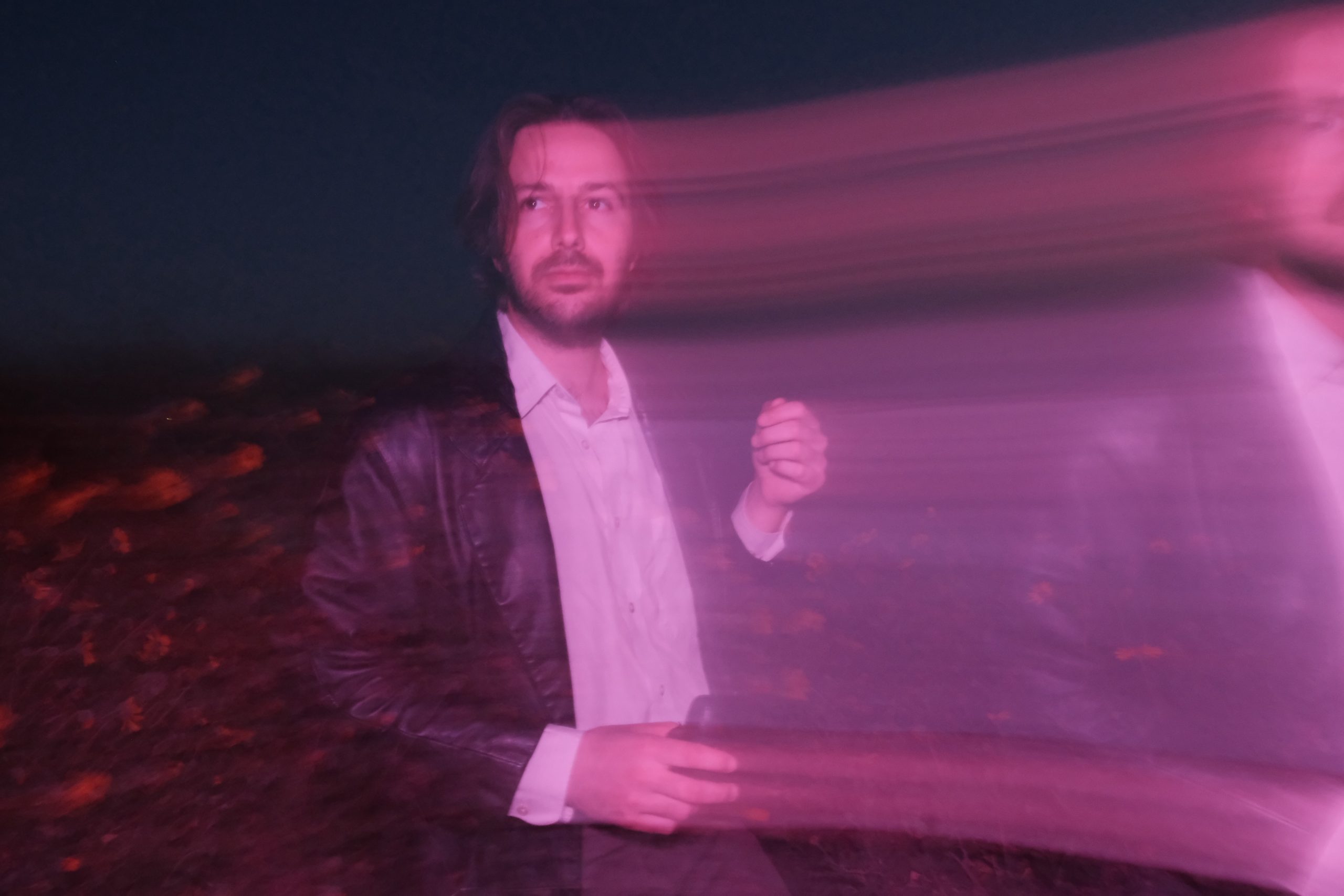
After crisscrossing the nation for the last half-decade looking for a home, Pokey LaFarge found himself in Mid-Coast Maine. Upon arriving, the Illinois-born singer/songwriter/actor pursued a major life change, working 12-hour days on a local farm—a turn of events that catalyzed an extraordinary burst of creativity and redefined his sense of purpose as an artist. On his new album Rhumba Country, LaFarge reveals his newly heightened devotion to making music that channels pure joy. “There was a time when I glorified sadness because I lost sight of who I was, but now I understand that creating and expressing joy is my gift, and gifts are meant to be shared,” he says. Reclaiming his voice, LaFarge has recorded his boldest album yet.
Rhumba Country was initially shaped from material that emerged while LaFarge was deep in work on the farm. “I’d be pushing a plow or scattering seeds, and the songs would just come to me,” he recalls. “It was tremendously inspirational and made me realize that apart from singing, farming is perhaps the oldest human art form.” But as he moved forward with his songwriting, something felt undeniably amiss. LaFarge then spoke with fellow Midwestern transplant Elliot Bergman (Wild Belle), who suggested he return to city life in Los Angeles for a season so that the two musicians could work together—a collaboration that soon brought the rhumba to LaFarge’s country. As he immersed himself in the album’s creation, LaFarge began dreaming up a kaleidoscopic sound informed by his love of music from far-ranging eras and corners of the globe, including mambo, tropicália, rocksteady, and mid-century American rock-and-roll. Co-produced along with Chris Seefried and Bergman and recorded in L.A., the resulting Rhumba Country is an invitation to come together to celebrate life and love. “The songs that naturally come to me are upbeat and make you wanna dance or at least bop your head—they’re all very colorful,” says LaFarge. “I used to think of my music in dark blue, but now I see it in technicolor.”
On the album-opening “One You, One Me,” LaFarge offers a retreat into the charmed and rhapsodic world of Rhumba Country, sharing a breezy love song rendered with radiant simplicity. “The same way Picasso worked his whole life to paint like a child, I’ve been more focused on simplifying my music over the years,” he says. “The fewer the chord movements and simpler the lyrics, the clearer the message. It’s about trying to get to the point where the songs are almost like prayers.” In the case of “One You, One Me,” that benediction centers on LaFarge’s belief in “evolving and working hard to love and be loved because that’s what we’re here to do.” And like all of Rhumba Country, “One You, One Me” serves as a prime showcase for LaFarge’s unforgettably distinct voice and ineffable charisma—an element he’s also continually brought to his work as an actor, including recent endeavors like his turn as Hank Snow on CMT’s Sun Records, as well as roles in the Southern Gothic thriller The Devil All the Time and the forthcoming rock opera O’Dessa. LaFarge pares his songs down to the essential throughout Rhumba Country, ornamenting each track with subtle details that immediately delight the listener. On “Run Run Run,” for instance, layered percussion and distorted guitar tones converge in what he describes as a “tropical-gospel song.” Graced with the heavenly harmonies of his wife, Addie Hamilton (a singer/songwriter in her own right), “Run Run Run” ultimately delivers an exultant call to overcome the obstacles and distractions that keep us from pursuing our calling. “That’s based on the words of Paul the Apostle, who said to run the race set before you,” LaFarge explains.
Over the course of Rhumba Country’s ten effusive tracks, LaFarge dispenses hard-won wisdom in a way that’s never heavy-handed, often imbuing his songwriting with all the guileless magic of a fable or folktale. A perfect example of that dynamic, the ’60s-R&B-influenced “Sister André” was inspired by the true story of the French nun who recently passed away at the age of 118. “She lived through both world wars, the flu epidemic, all the way down the line through Covid,” says LaFarge. “After I heard her story, I started singing about a character who’s got a lot of sage advice to share, and it turned into a song of encouragement for those who are lonely and hoping for love.” On “So Long Chicago,” LaFarge slips into lighthearted storytelling as he muses on the cultural phenomenon of those in colder climates heading south for winter. Co-written with Hamilton, the playfully cheeky snowbird ode mines inspiration from ’70s-era Chuck Berry, unfolding in freewheeling guitar work and fiercely stomping rhythms. A bona fide musical eccentric, LaFarge further flaunts his idiosyncratic sensibilities on the magnificently loopy “Like a Sailor,” a dance-ready and dreamlike number that speaks to the inevitability of struggle on one’s path.
As he documents his tireless journey toward finding his true home, LaFarge also reimagines a tune from reggae legend Ken Boothe. Spotlighting his supreme talents as a song interpreter, his take on “Home, Home, Home” infuses a heartfelt longing into every moment and, in turn, breathes new life into the late-’60s rocksteady classic. “The more you listen to music from around the world, you realize everybody’s got their form of country music,” says LaFarge. “It goes back to why I named the album Rhumba Country in the first place: it’s poking fun at the futility of boxing everything into but a few genres, ‘What is folk music? What is country or soul?’ I’ve always bucked at all those boundaries and found it much more exciting to create my own genre.”
LaFarge’s boundless curiosity for music from other cultures played a vital part in shaping the album’s instantly captivating sound. “Listening to a lot of music from around the world helped simplify my approach,” he notes, naming Brazilian singer/composer Jorge Ben among his key inspirations on Rhumba Country. “When you scale back the chord progressions and get a good rhythm going, the musicians have more freedom to play anything or nothing at all. There’s so much space everywhere, and as a singer, it allows me to be that lead instrument and weave in and out however I want.” At the same time, LaFarge brought a more intense and focused rigor to his songwriting process. “I need to trust in what feels good to me, but I also have to ask myself, ‘Is the message coming through? Am I stimulating thought in a way that might shift someone’s
perspective? Am I being honest in telling my story, and am I doing it in love?’” he says.
Reflecting on the origins of Rhumba Country, LaFarge points to one of the most crucial revelations he experienced while farming: a newfound understanding of the uniquely human potential to be “conduits of continuous creation.” To that end, his effort to provide listeners with “medicine for the soul” has led LaFarge toward a deeper level of dedication when it comes to nurturing his own spirit. “You have to live the life you’re singing in your songs—no matter what you’re going through,” he says. “Everything will come out in your music whether you want it to or not. I’ve realized that the more I can pursue goodness and live in peace, the more I can make the music I was put here to make.” And by living with intention and fully connecting with his truest purpose, LaFarge might finally be ready to lay his head in a place he calls home.
PAST SHOWS
Pokey LaFarge
Cicada Rhythm
SIMILAR ARTISTS
